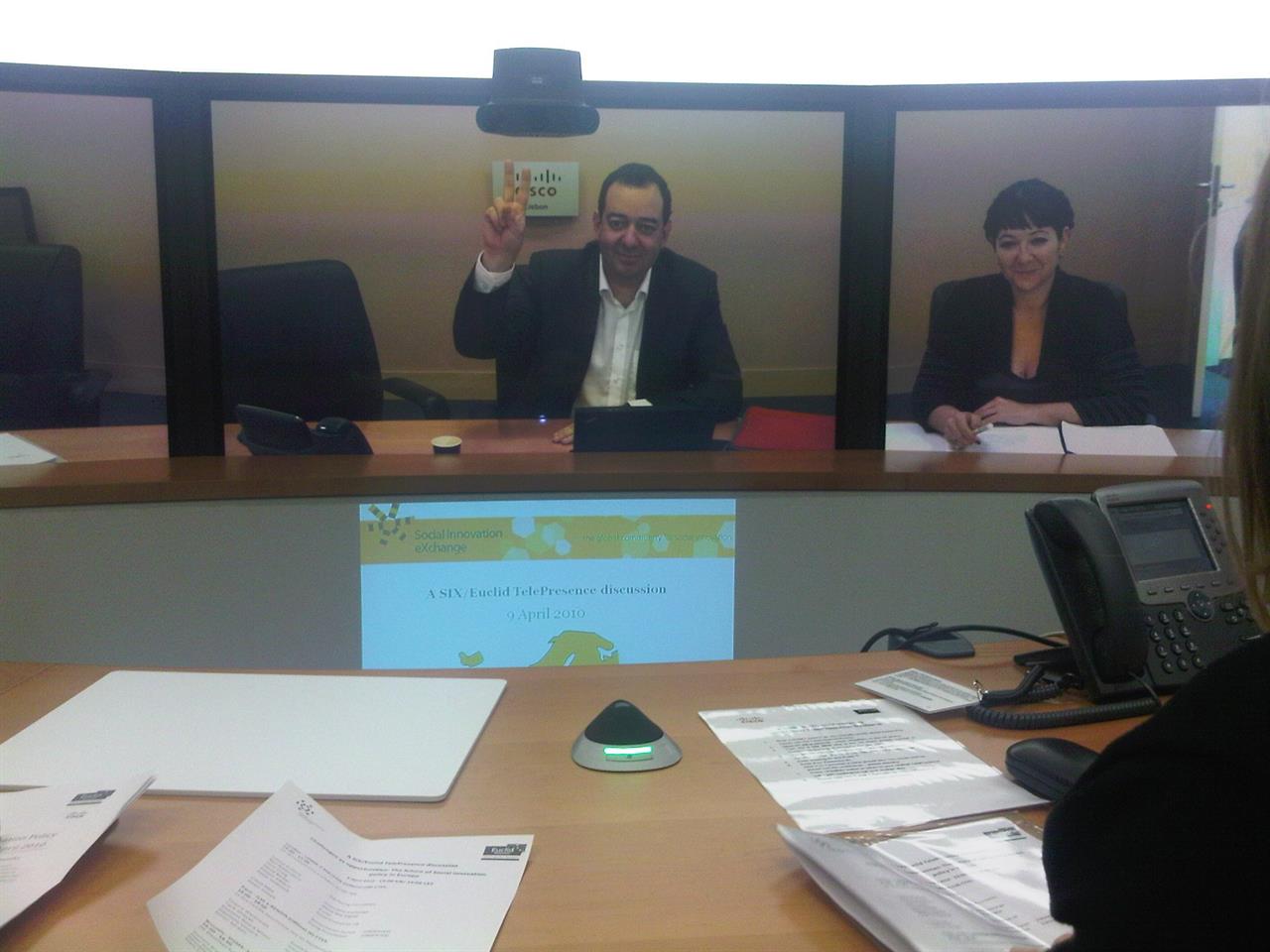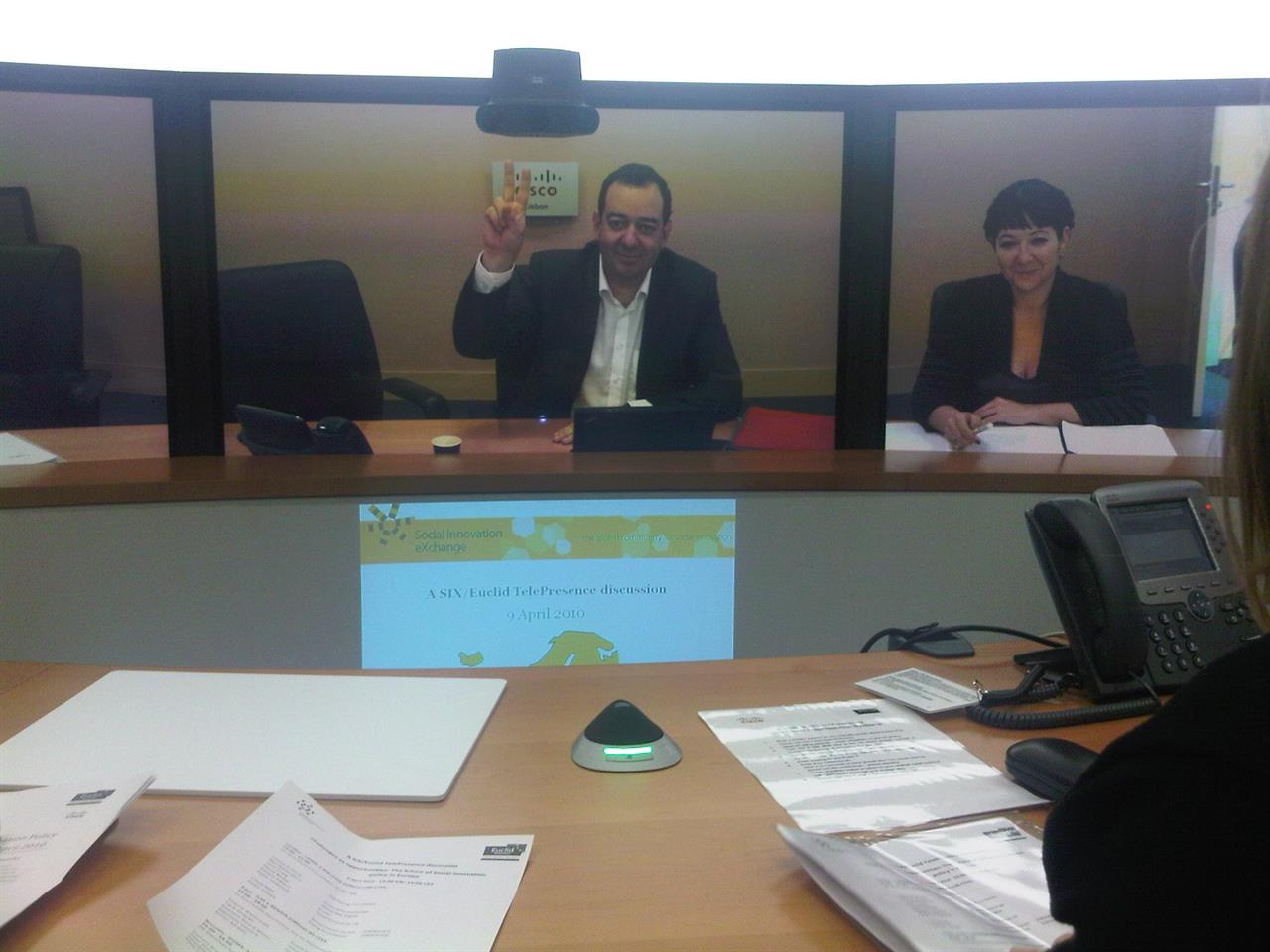
When I was a kid I loved irritating people, pointing out what they would spend all their energy trying to hide. It might sound like a quote from the Marquise de Merseille (Les liaison dangeureuses) but it’s true and I am still enjoying it just with a different set of people: the third sector Talibans.
There is nothing they hate the most than cross-sector contamination – I call it cross-fertilization. So, on Friday, we organised our first telepresence conference on social innovation gathering leaders from Cisco, Ashoka, Caritas, French mutual MGEN, Portuguese Misericordia, Muslim charities, BMW Foundation and EDF Foundation, French Public Administration and the European Commission (see the pictures on facebook)
Would the Talibans digest such a mix?
Easy to answer: they ignore what’s happening at the moment. They think they can preserve their vested interests, ignoring what’s happening outside and keeping ‘their people’ locked inside. It’s the same vision the Soviet Union had and we saw how that ended.
The event we organised with SIX on Friday is just a hint of a movement that is growing in to a tide. It’s made of people – especially young people – who are fed up with a system where the elderly don’t allow for mobility and entrepreneurship and monopolize the debate and resources, pretending to look out for the interests of people.
The movement is growing across sectors, uniting people who want to make a difference in society. They don’t care about structure, representation and hierarchy. We want to see an impact and be free to make it happen. They share values but each one wants to carry on his/her own enterprise independently. The share and partner because they want to, not because they have to. The new generation wants to lead the future taking responsibility while the Talibans just shout for a share of wealth produced by the others.
It’s such a different compared to what I’m witnessing in civil society during the Spanish presidency of the EU. in May three will be 4 conference on civic action, social economy and civil society in the Mediterranean – the first two taking place at the same time! – since we planned to do something in Spain during the presidency I approached the organisers of the planned events. None answered positively. Once we decided to organised our own conference then, they even refused to make a link to connect our websites!
The Talibans of the social economy are aggressive to defend their identity as incapable of engaging in joint efforts. They don’t stand any chance if succeeding. In fact they are doomed to fail as dinosaurs in an age of networks.
We will get rid of the Talibans but we must plan the future. This is my (short) shopping list of challenges faced by us as sector: unity and innovation.
Starting with the first one, we must realized that united we are stronger. We must overcome national borders and historical boundaries such as social economy and philanthropy. Multiplicity (diversity) and connectedness are the marks of our time – the network society – and we should embrace it. The clash of civilization, climate change and the financial crisis have proved there is no time to waste.
On the other hand, much has to be done to foster a culture of innovation in the sector. Next week we will organise the first event at the European Parliament to present case studies of social innovation from across Europe.
I’ve realized what such lack of clarity we face in the sector. Everybody talks about social investments but everybody means something different. For example, some mean spending charitable donations more efficiently by social investments while others want to invest in social enterprises and get a return that can compete with profits made with corporations.
At the telepresence event the guy from Ashoka came out with the idea that such investments should be made with tax payers money if they include a risk, implicitly stating that only the private sector can lead on social innovation and building a social market in Europe. Thierry from the French social economy replied that citizens are the driving of the sector and business just provides the means.
I will discuss the details of such a topic in another blog entry but this is an example of unclarity thriving in our sector. It could backfire causing scissions and damaging its unity. It ‘s an obstacle in working with other stakeholders, lobbying institutions and educate the public.
Conclusion: even with the Talibans gone, is this enough to reform our sector? No. Do I have an answer? Not yet. I just keep doing what I do and what I’m good at: connecting the change makers and building their network for the future.
Nessuno ti regala niente, noi sì
Hai letto questo articolo liberamente, senza essere bloccato dopo le prime righe. Ti è piaciuto? L’hai trovato interessante e utile? Gli articoli online di VITA sono in larga parte accessibili gratuitamente. Ci teniamo sia così per sempre, perché l’informazione è un diritto di tutti. E possiamo farlo grazie al supporto di chi si abbona.

